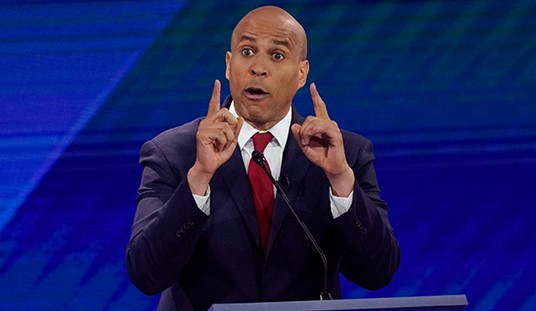The mainstream media has never been expected to be kind to conservatives, much less, accurate. As such, it’s not largely surprising that The Economist would come out and label one of conservatism’s biggest names as “alt-right,” which is what leftists call anyone right of Karl Marx.
Ben Shapiro is arguably conservatism’s biggest fish right now, especially with his latest book hitting #1 on the New York Times best seller list. It was only a matter of time before the mainstream media attempted to ruin him. Sure enough, The Economist took its best shot by releasing an article titled “Inside the mind of Ben Shapiro, the alt-right sage without the rage.”
A surface level introduction into Shapiro will give you a pretty clear understanding of his views on the alt-right. As a Jewish man who found himself in opposition to President Trump on more than one occasion, the alt-right has consistently made Shapiro a target, to put it lightly. The feeling is mutual, as Shapiro crushes them regularly with intellectual points.
Despite this, The Economist wheeled Shapiro out as a parade conductor of alt-right sympathy and even referred to his website “The Daily Wire” as an outlet “catering to hyperventilating conservatives:
He blasted into the public sphere at the tender age of 20 with his first book, “Brainwashed: How Universities Indoctrinate America’s Youth”, that made him a modern face of conservative politics and a pop idol of the alt-right. After a stint at Breitbart, the veritable headquarters of right-wing media, he created his own outlet, The Daily Wire, catering to hyperventilating conservatives.
Needless to say, Shapiro was furious and took to Twitter to publicly torch The Economist.
Hit #1 on the NYT bestseller list and within hours @TheEconomist is lying about me by labelling me alt-right. How disgusting.
— Ben Shapiro (@benshapiro) March 28, 2019
It contains the following descriptions of the alt-right:
— Ben Shapiro (@benshapiro) March 28, 2019
"The racist alt-right movement" (p. xvi);
— Ben Shapiro (@benshapiro) March 28, 2019
"In late March, the execrable Milo Yiannopoulos penned a story at Breitbart openly praising the alt-right, including odes to racist cretins like Richard Spencer." (p. xxii-xxiii)
— Ben Shapiro (@benshapiro) March 28, 2019
"Racial solidarity among members of the intersectional coalition has also driven reverse racial solidarity from the so-called alt-right — a group of racists who have sought to promote white pride…The alt-right remains a fringe movement, but their arguments have…
— Ben Shapiro (@benshapiro) March 28, 2019
…penetrated into more visible circles thanks to a reactionary tendency by some on the Right to embrace anyone who supposedly opposes political correctness." (p. 208)
— Ben Shapiro (@benshapiro) March 28, 2019
In other words, if you label me alt-right, f*** you and f*** the horse you rode in on.
— Ben Shapiro (@benshapiro) March 28, 2019
As the Daily Wire further elaborates, the conservative side of the internet erupted in outrage over this wholly unfair treatment of Shapiro who was good enough to sit down with The Economist for what was, for all intents and purposes, a very well done interview. Shapiro even applauded the interview itself, linking to the audio of it not long ago.
The backlash was so heavy that The Economist proceeded to change the headline and add an editor’s note.
“This article has been changed. A previous version mistakenly described Mr Shapiro as an “alt-right sage” and “a pop idol of the alt right”. In fact, he has been strongly critical of the alt-right movement. We apologise,” wrote The Economist.
Philip Klein of the Washington Examiner made an excellent point as to why this happened, and it all revolves around how the media paints the right in order to make them a persona non grata. Before the term “alt-right” was thrown around, the leftist media used the term “neo-conservative.”
Neo-conservatives referred to a more specific group on the right — former Democrats who recoiled from the leftward drift of the party in the 1960s and 1970s. They were alienated by the campus radicalism, supported a more adversarial posture toward the Soviet Union, and started to see government programs and mismanagement as leading causes of urban decay. After Sept. 11, they became influential because the administration embraced their interventionist foreign policy and beliefs in democracy promotion. Because neo-conservatives were leading proponents of the Iraq War and that was the dominant debate of the Bush era, the term “neo-con” was slapped on everybody who supported the war, had a hawkish foreign policy, or who was just considered really conservative. In some corners, the term “neo-con” became used as an anti-Semitic smear of Jewish conservatives.
Same play from the mainstream leftist playbook, different word.














Join the conversation as a VIP Member